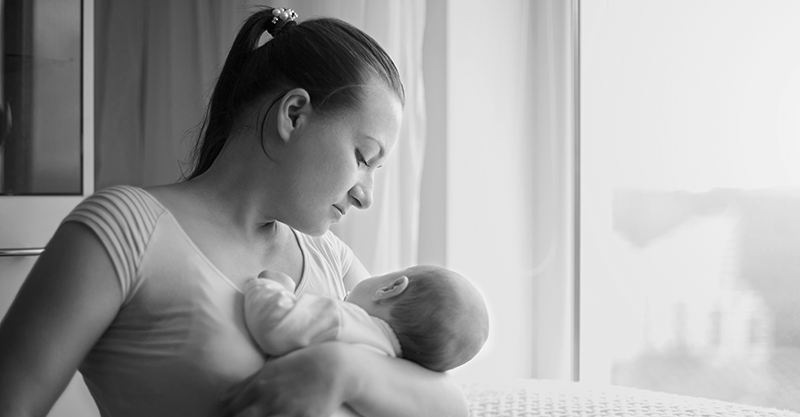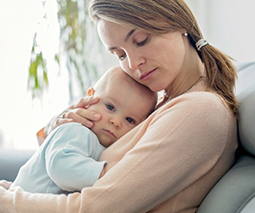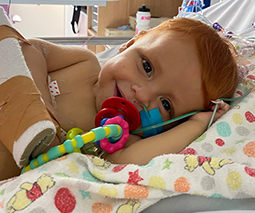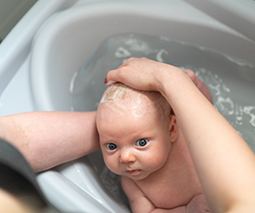Anxious mums are more likely to have babies with reflux, finds study

An Australian study has revealed that the babies of first-time mothers with mental health disorders are more likely to be diagnosed with reflux. The authors claim that the study findings suggest a dire need for more support in early motherhood, rather than being given a script for medication their baby might not need.
Reflux happens when a baby posits or spits up milk after swallowing. Known as gastro-oesophageal reflux (GOR), this can be a messy experience but is very normal in babies and often resolves itself as their digestive system matures. Some babies have more severe symptoms, which could be a sign of the gastro-oesophageal reflux disease (GORD). This condition requires medical advice and sometimes medication. While GORD can be serious and chronic, the symptoms of GOR are less well defined, and subject to over-diagnosis.
What the study looked at
The extensive study looked at the hospital records of 869,000 babies born between 2000 and 2011, examined 326 admissions to parenting services Tresillian and Karitane, and conducted 45 focus groups with doctors and nurses who worked firsthand with mums who were struggling in early motherhood.
It revealed that the babies of mothers with psychiatric conditions were five times more likely to be treated for reflux. Overall, more than one in five babies diagnosed with GOR or GORD had mothers with an anxiety or stress disorder.
Mums aren’t to blame
The researchers are quick to point out that the study doesn’t blame mums with anxiety for increasing cases of reflux in their babies. The early relationship between mum and baby is more complex than this, says professor of midwifery Hannah Dahlen, who suggests that anxiety during early motherhood can create a dynamic between mother and baby.
“An anxious mum can lead to a more anxious baby but a crying baby who never sleeps can create anxiety in the mother and then there can be a rising cycle of anxiety between them,” she told the Sydney Morning Herald.
The findings suggest that more support is needed during motherhood, to help normalise infant behaviour and provide care and guidance for the mother. This could help reduce anxiety for mum and baby, as well as decrease the need for medication in young babies.
This isn’t to say that cases of reflux aren’t valid. While severe symptoms require medical advice and potentially treatment, many cases of simple reflux resolve on their own in the first year of a baby’s life – without the need for medication. So rather than a script, maybe a listening ear is what could really help.
Mums need support
It’s no secret that early motherhood is hard work, and this can be made worse without adequate support. Once partners return to work and family visitors go home, many mums are left at home to care for their baby, who may not be a great sleeper or feeder. Sleep deprivation, fluctuating hormones and the loneliness that often comes at this time can mean that anxiety and stress is a real issue for mums.
While the study emphasises that anxious mums are in no way to blame for reflux in their baby, these mums may be more likely to present to their GP with a baby that is hard to feed and settle. But rather than being given a script and sent on their way, perhaps a little more delving into how mum is coping could be a better option. As well as decreasing the need for medication, a new mum’s struggles could instead be validated and more appropriate support offered.












